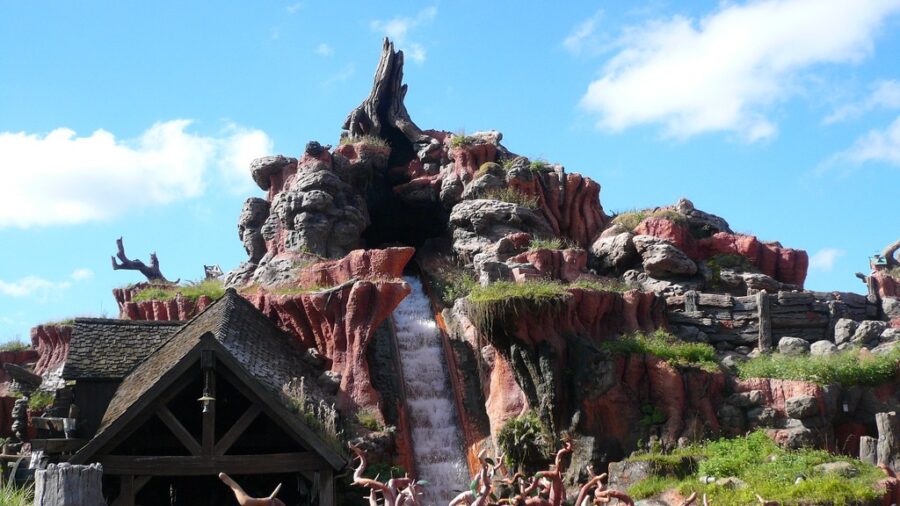Disney Is Replacing Splash Mountain With A Ride About Slavery?
Online pundits are claiming that Tiana's Bayou Adventure, Splash Mountain's replacement, references slavery by being inspired in part by geological salt formations.

The Walt Disney Company recently shuttered its Magic World Splash Mountain ride, with its Disneyland and Tokyo Disneyland locations slated to be closed at an unannounced future date, and commentators online are already speculating that its replacement will be associated with slavery. Per an article in That Park Place, Splash Mountain’s replacement Tiana’s Bayou Adventure (a narrative continuation of the 2009 film The Princess and the Frog) is invoking the history of American slavery by having a feature modeled after Louisiana’s Avery Island, which once held a sugar plantation and several salt domes used as mines.
Disney has claimed that Splash Mountain was in the process of being replaced by Tiana’s Bayou Adventure years before the 2020 protests around the death of George Floyd, generally regarded as a modern referendum on the state of racial relations in the country. Regardless, it is popularly believed that Disney is doing away with Splash Mountain due to its origins as an adaptation of the 1946 Disney film Song of the South, which has been criticized as envisioning pre-Civil War slavery as a benevolent and welcome system and for the allegedly racist portrayal of Black Americans in the post-war Reconstruction Era. As such, it is a little odd to criticize Tiana’s Bayou Adventure for potentially referencing slavery when it is the literal foundation of Splash Mountain.
According to Laughing Place, Disney Imagineers held an event in December of 2022 (led by Executive Creative Producer Charita Carter and Executive Creative Director Ted Robledo) in which several aspects of Splash Mountain’s replacement were discussed. Among other things, it was mentioned that Avery Island’s salt dome (a natural hill-like feature caused by underground salt deposits) was a visual inspiration for the story; while That Park Place claims that the feature is “nothing like a mountain or even a hill,” Avery Island’s salt dome is 163 feet tall, which definitely exceeds Splash Mountain’s maximum height of 89 feet.
While Avery Island does indeed have a history of slavery, the same could be said of most of the American South. In fact, the primary location of The Princess and the Frog, New Orleans, was the largest slave market in the United States; slavery was not abolished in Louisiana until 1864, meaning it would be in direct living memory in the movie’s setting of the 1920s. While Splash Mountain largely removed the narrative of Song of the South, the source material was set on a plantation just after slavery was abolished, which actually makes it a bit closer to discussing slavery.

Tiana’s Bayou Adventure is also seeming to be criticized for basically being a new adventure of the title character (notably, Disney’s first Black Princess), rather than a straight repeat of the film in the medium of water-based theme park rides. While Splash Mountain’s replacement has not yet been opened to the public, there seems to be an assumption that it will engage with concepts of American slavery in a more direct form than the idealized benevolence of “Zip-a-Dee-Doo-Dah” and reference to Br’er Rabbit stories, which are themselves American creations distinct from African folklore. Disney fans will just have to wait for the ride to open to see.













